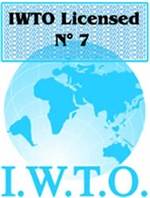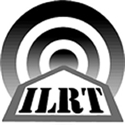
Accreditation
AWTA has a strong international reputation for Technical Excellence.
AWTA submits its technical performance to external monitoring through an annual publication of Independent Laboratories Round Trials (ILRT) group performance to the International Wool Textile Organisation (IWTO) and through participation in interlaboratory trials for Fibre Diameter and Fibre Length in wool tops conducted by Interwoollabs.
AWTA is:
- Licensed by International Wool Textile Organisation (IWTO) to issue IWTO test certificates
- Accredited by NATA to the international standard for laboratory performance, ISO 17025
- A participant in the interlaboratory round trials organised by the ILRT. This is the only significant trial of its kind that monitors the performance of test houses that issue IWTO certificates for raw wool
- Accredited by Interwoollabs - measurement of Fibre Diameter and Fibre Length in tops
International Wool Textile Group (IWTO)
 |
The International Wool Textile Organisation or IWTO (also known as the Federation Laniere Internationale) was established in 1928 and plays a central role in fostering the development of internationally accepted Test Specifications for raw wool, wool sliver, yarns and fabrics. These include the standards and regulations under which AWTA delivers its services and the independent guarantees given to our certified testing. AWTA through its membership of the Federation of Australian Wool Industries (FAWO) is an active member of the IWTO Committees responsible for the governance of the following primary objectives: |
A key aspect of this process is the production of technical and commercial standards used by parties along the wool supply chain.
These include:
Blue Book |
Documents the conditions under which most of the world wool trade conducts its business as agreed between the various players in the wool-textile trade and industry. The International Wool Textile Arbitration Agreement, set out in the Blue Book provides for the resolution of disputes arising between partners from different countries. The Blue Book is regularly reviewed to reflect the current commercial practice and requirements. |
Red Book
|
IWTO develops and regularly updates a large number of Test-Methods to maintain standardisation between testing facilities and reliability of tests carried out on the fibre. |
Regulations |
Associated with each test method are regulations which govern their use. These regulations include formal procedures and technically determined criteria for assessing the validity of test results subject to dispute or suspected error. |
AWTA is also licensed to produce IWTO Test Certificates and independently accredited as compliant with the above regulations and standards.
Find out more at http://www.iwto.org/
Independent Laboratories Round Trials (ILRT)
 |
The ILRT Group Members represent the largest independent wool testing laboratories in the world, and are collectively responsible for the testing of approximately 40-50% of the world's greasy wool production and in excess of 80% of all greasy wool tested. The 5 laboratories currently participating in the ILRT are:
|
The objects and aims of the Group are:
- to develop co-operation between the Member's laboratories, with a view to ensuring the most correct and uniform application of approved testing and sampling methods as may be set out in the Specifications of the International Wool Textile Organisation (IWTO) and in any associated IWTO regulations
- to ensure that the Member's laboratories obtain accurate test results having a high level of precision, in their application of those specific IWTO Test Methods and procedures which are relevant to the Group's agreed annual work programme
- to collect such data, with respect to those IWTO specifications being utilised in the ILRT programme, as is required or desirable, having regard to the principle ILRT functions of harmonising and monitoring the technical performance of the Member's laboratories
- to assist Member's laboratories in resolving disputes arising from differences in test results, by ascertaining the causes of any discrepancies
- to the extent feasible, to allow non-competing commercial laboratories to become Participating Laboratories in the interlaboratory round trials from time to time
The ILRT Group report is presented to every IWTO Congress, thereby placing the performance of each of the participating laboratories under regularly technical and commercial review by the industry:
- to develop co-operation between the Member laboratories, with a view to ensuring the most correct and uniform application of approved testing and sampling methods as set out in the Specifications of the International Wool Textile Organisation and in any associated International Wool Textile Organisation Regulations
- to ensure that Member laboratories obtain accurate test results which have a high level of precision, in their application of those specific International Wool Textile Organisation test methods and procedures which are relevant to INTERWOOLLABS' approved annual work programmes
- to assist Member laboratories in resolving disputes arising from differences in test results, by ascertaining the causes of any discrepancies
INTERWOOLLABS
 |
|
The International Association of Wool Textile Laboratories (also known as INTERWOOLLABS) was setup in by the IWTO in 1969 to:
- to develop co-operation between the Member laboratories, with a view to ensuring the most correct and uniform application of approved testing and sampling methods as set out in the Specifications of the International Wool Textile Organisation and in any associated International Wool Textile Organisation Regulations
- to ensure that Member laboratories obtain accurate test results which have a high level of precision, in their application of those specific International Wool Textile Organisation test methods and procedures which are relevant to INTERWOOLLABS' approved annual work programmes
- to assist Member laboratories in resolving disputes arising from differences in test results, by ascertaining the causes of any discrepancies
To support these objectives, INTERWOOLLABS presides over a number of international laboratory harmonisation schemes in the areas of:
- fineness measurement of wool tops using the AIR-FLOW apparatus (1969)
- fineness measurement of wool tops using the PROJECTION MICROSCOPE (1970)
- fibre length measurement of wool tops using the ALMETER (1972)
- fineness measurement of wool tops using the LASERSCAN (1997)
- fineness measurement of wool tops using the O.F.D.A. (1997)
AWTA is an active member of the Association, providing technical and administrative support to its activities and programs. Membership is open to Institutes, Firms and test laboratories, whether or not they are located in countries whose wool-textile industry is affiliated to the IWTO.
Find out more at www.interwoollabs.org


